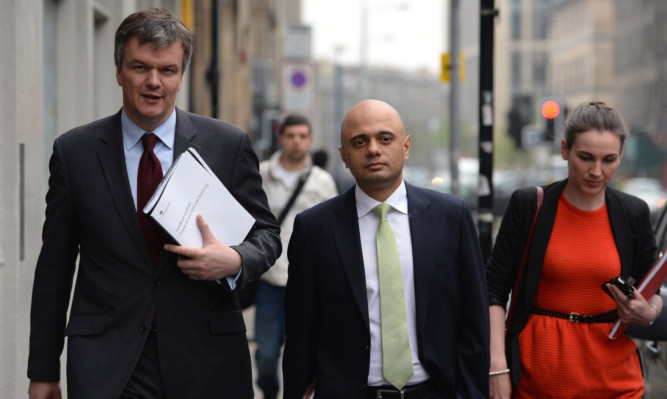Scots could face higher mortgage, insurance and banking charges under independence, according to the UK Treasury.
A report launched by Scotland secretary Michael Moore and economic secretary to the Treasury Sajid Javid argues the competition of a large UK market increases customer choice and therefore keeps costs lower.
The civil-servant drafted paper dismissed by SNP ministers as far-fetched and flimsy raises concerns about the future of mortgage products, car insurance, pensions and even price comparison websites.
It says ISAs would no longer be available in Scotland in the event of a Yes vote because they are only available to UK citizens. The paper acknowledges a Scottish version could be set up but at a probable cost.
EU law would also require an independent country to set up its own regulator, so any firms trading on both sides of the border would have to comply with two sets of regulations, according to the report.
The document says this would increase costs for businesses and force them to decide if they wanted to compete in the Scottish market.
It also compares the UK’s free current account and by-and-large free cash withdrawal banking system with the Republic of Ireland’s, where customers either pay a quarterly charge for their accounts or stump up a small fee every time they use an ATM machine.
Mr Moore said Scotland would effectively have “turned its back” on UK institutions so an independent government would have to renegotiate in all major areas.
“You don’t have to be a genius to work out that ultimately it would be you and me who bear those costs, whether it be in mortgages, pensions or in our insurance,” he added.
Meanwhile, First Minister Alex Salmond and Deputy First Minister Nicola Sturgeon highlighted six areas as they launch a report on Scotland’s economic strengths and the case for independence.
It claimed Westminster decisions to concentrate economic activity in London, pursue austerity rather than growing the economy and engage in a boom in credit and debt expansion has held Scotland back.
A spokesperson for Dundee-based Alliance Trust said: “We do not expect that these questions will be answered definitively ahead of the referendum, but it is good to see that the questions are being debated at the highest level as the electorate need to be fully informed of the implications of voting yes or no.”
